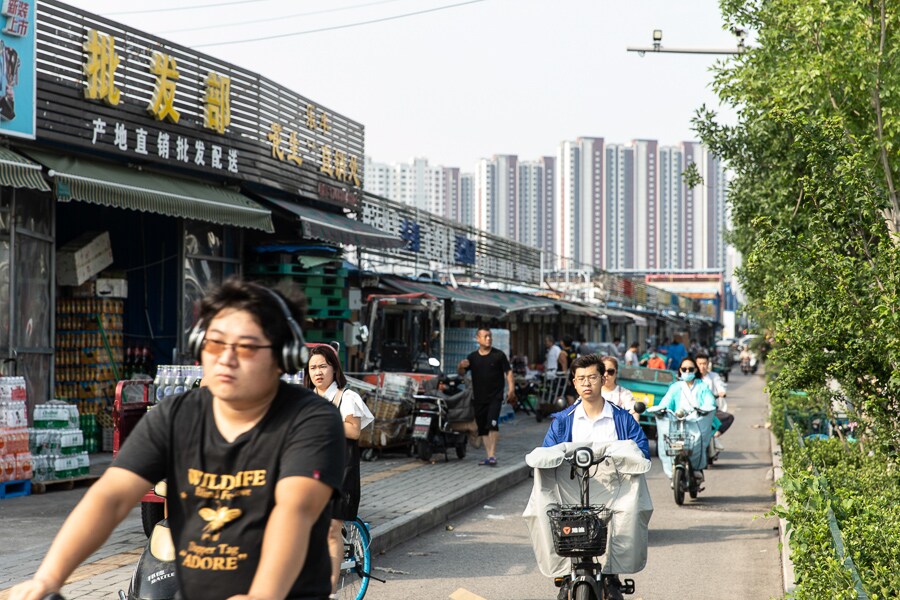
Warning of income gap, Xi tells China's tycoons to share wealth
Xi says the Communist Party will pursue "common prosperity," pressing businesses and entrepreneurs to help narrow the stubborn wealth gap that could hold back the country's rise and erode public confidence in the leadership
 Commuters in Jinan, China, July 13, 2021. As the country’s leader prepares for a likely third term, he is promising “common prosperity” to lift farmers and working families into the middle class; Image: Qilai Shen/The New York Times
Commuters in Jinan, China, July 13, 2021. As the country’s leader prepares for a likely third term, he is promising “common prosperity” to lift farmers and working families into the middle class; Image: Qilai Shen/The New York Times
Four decades ago, Deng Xiaoping declared that China would “let some people get rich first” in its race for growth. Now, Xi Jinping has put China’s tycoons on notice that it is time for them to share more wealth with the rest of the country.
Xi says the Communist Party will pursue “common prosperity,” pressing businesses and entrepreneurs to help narrow the stubborn wealth gap that could hold back the country’s rise and erode public confidence in the leadership. Supporters say China’s next phase of growth demands the shift.
“A powerful China should also be a fair and just China,” Yao Yang, a professor of economics at Peking University who endorses the shift in priorities, said by email. “China is one of the worst countries in terms of redistribution, despite being a socialist country. Public spending is overly concentrated in cities, elite schools and so on.”
Officials are pledging to make schooling, housing and health care less costly and more evenly available outside big cities, and to lift incomes for workers, helping more people secure a place in the middle class. The “common prosperity” campaign has converged with a crackdown on the country’s tech giants to curb their dominance. Facing scrutiny, some of China’s biggest billionaires, including Jack Ma, have lined up to pledge billions of dollars to charity.
The pledges hold out the prospect, endorsed by Xi in a meeting last month, that China is now affluent enough to shift closer to the Communist Party’s long-standing ideal of wealth sharing. For Xi, the Communist Party’s long-term authority is at stake.
©2019 New York Times News Service







